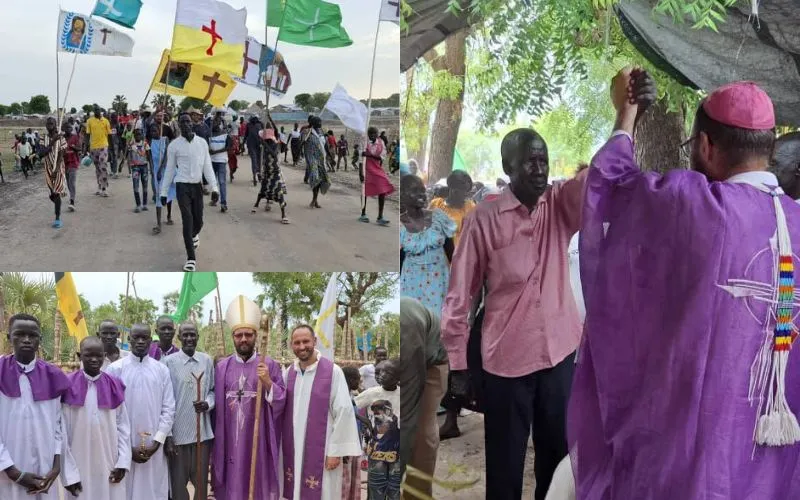In Laudato Si’, Pope Francis addresses the injustices of the rich countries resulting from unfair and destructive exploitation of creation.
In Fratelli Tutti, the Holy Father laments the economy that disadvantages and excludes the so-called third world countries.
Most of the countries Pope Francis visited are poor countries with social and political instability, the recent one being the Democratic Republic of Congo (DRC), where Bishop Sipuka recalls the Holy Father “explicitly criticized former colonizing countries for exploiting the resources of poorer countries.”
He notes that Pope Francis, as a global leader, addresses injustices against the poor at that level, and adds, “We must also do it in our context, beginning at a personal level where we strive to act justly and, in the workplace, in the Parish, in the area in which we live, in the province and the country, pursue justice.”
In his tribute to the 86-year-old Pontiff, Bishop Sipuka celebrates “a Pope of simplicity and accessibility”, and explains that the whole posture of Pope Francis is marked by simplicity, availability, and solidarity with ordinary people.
(Story continues below)
The simplicity, he says, was expressed by his first words after he was elected Pope, “pray for me”.
The Holy Father continues in his life as Pope to be simple, breaking protocols and reaching out to people in a way in which Bishop Sipuka notes causes “a nightmare for his aids and security personnel.”
The Bishop of Mthatha reminisces an encounter he once had with Pope Francis, saying, “At a meeting in Rome, I recall chatting with him at teatime, and when we went to the bookstall, he took out a wallet and bought a book like the rest of us but then forgot the wallet on the table. When one Bishop took it and gave it to him, he remarked, ‘He is still honest’ as if the rest of us around him were dishonest people, and we laughed.”
Pope Francis also stands out as a Pontiff of communion and Synodality, Bishop Sipuka observes, and explains, “Pope Francis will come down in history as a Pope who propagated a communal and Synodal vision of the Church.”
According to the South African Bishop, Pope Francis’ vision of Synodality is nothing new but a visitation of a vision adopted 60 years ago by the Vatican II Council.
However, the Holy Father’s launch of the Synod on Synodality breathes new energy into the vision of Vatican II Council, Bishop Sipuka said.
“Unfortunately, things remained the same in practice as they were 60 years ago. This was confirmed recently by the answers to the local and universal synods question,” he further said.
He continued, “From these answers, it transpired that the office and function of the ordained priesthood continue to dominate while the rest of the membership is reduced to the role of listening and supporting the Church.”
“Pope Francis’ call to the communal and Synodal view of the Church seeks to reverse this situation,” Bishop Sipuka says in his reflection in the April 3 Newsletter.
Agnes Aineah is a Kenyan journalist with a background in digital and newspaper reporting. She holds a Master of Arts in Digital Journalism from the Aga Khan University, Graduate School of Media and Communications and a Bachelor's Degree in Linguistics, Media and Communications from Kenya's Moi University. Agnes currently serves as a journalist for ACI Africa.








